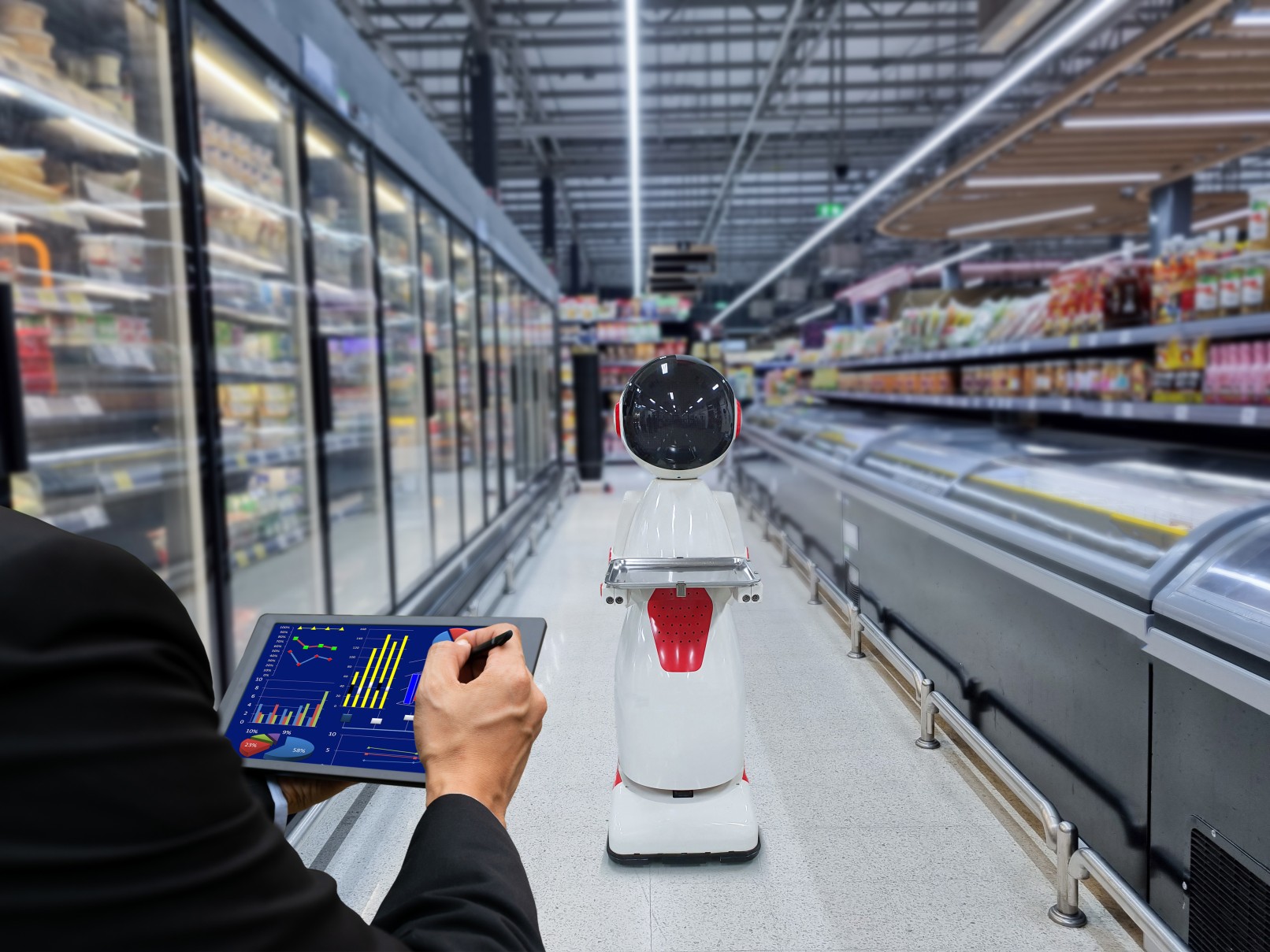The Future of Inventory Management: How Automation and AI Are Revolutionizing Retail Stores and Supermarkets

In the highly competitive world of retail, one thing remains constant: the need for efficient inventory management. For stores and supermarkets, this has become more critical than ever. Imagine walking into a supermarket where shelves are perfectly stocked—neither bare nor overflowing—and where every item you need is always available. Behind this seemingly smooth operation is a hidden network of advanced technologies, driving a retail revolution.
Gone are the days when store managers relied on manual processes or gut instinct to manage stock levels. The future belongs to automation, artificial intelligence (AI), and data analytics, which are transforming how retail stores and supermarkets manage their inventory. This shift is not just about efficiency; it’s about meeting customer expectations, staying ahead of competitors, and optimizing operational costs.
For years, inventory management in retail was a labor-intensive process. Store managers manually checked shelves, recorded stock counts, and placed orders based on rough estimates. This system worked—but only to a point. The challenges were glaring:
Overstocking and Stockouts: Too much of one item and too little of another, leading to losses or missed sales opportunities.
Human Errors: Miscounts, misplaced items, and delayed orders caused inefficiencies.
Limited Insights: Managers could only react to inventory needs, rather than proactively plan for them.
As customer expectations grew, so did the need for more precise and responsive inventory management. Consumers wanted instant gratification, and nothing was more frustrating than walking into a store and finding their desired product out of stock. On the other hand, too much stock could lead to wasted resources and reduced profit margins.
Now, picture a modern-day supermarket equipped with automated inventory systems and AI-powered forecasting tools. These systems constantly track stock levels in real-time, using sensors and IoT-enabled devices that monitor every product on the shelf. Automated alerts inform managers when stock levels fall below a certain threshold, automatically triggering reorders from suppliers.
With the integration of AI, stores are no longer just reacting to stock needs—they’re predicting them. AI analyzes historical sales data, seasonal trends, local events, and even weather patterns to forecast which products will be in high demand. This predictive capability ensures that supermarkets always have the right products available when customers need them most.
The era of guesswork is over. Real-time inventory tracking offers a level of precision that was previously unattainable. Using advanced inventory management software, stores can now monitor stock levels across multiple locations, including warehouses, in-store shelves, and even supplier inventory.
This is especially important for large supermarket chains with multiple locations. Imagine managing hundreds of stores across different regions. Real-time tracking allows managers to optimize stock distribution based on regional demand, transferring products between locations to avoid stockouts or surpluses.
For example, during a hot summer weekend, supermarkets may notice a spike in the demand for cold beverages and ice cream. AI-driven systems can instantly redistribute stock from nearby stores with excess inventory, ensuring that no store runs out of popular items. This not only prevents stockouts but also helps to reduce waste by minimizing overstock.
One of the most transformative aspects of AI in inventory management is its ability to forecast demand with remarkable accuracy. By analyzing vast amounts of data, AI systems can predict consumer behavior far better than any human ever could. They take into account variables such as:
Historical sales data to understand past trends.
Seasonal fluctuations like holidays or special events.
Local demographics and preferences to tailor inventory to regional demands.
External factors such as weather, economic conditions, or even cultural events.
This demand forecasting allows supermarkets to plan ahead and prepare for upcoming trends. For instance, as fall approaches, AI might predict a surge in pumpkin spice products based on data from previous years. By stocking up in advance, stores can meet the demand head-on, ensuring customers find what they’re looking for.
Another significant benefit of automation and AI in inventory management is the reduction of waste. Overstocking can lead to spoilage, particularly for perishable goods like fresh produce, dairy, and meats. By using predictive analytics, supermarkets can better manage these items, reducing overstock and cutting down on waste.
Additionally, optimizing inventory levels means supermarkets don’t have to over-invest in stock that might not sell. This frees up capital for other critical areas, such as improving customer experiences or investing in new technology. Ultimately, AI and automation help retailers strike the perfect balance between having enough stock to meet demand and avoiding the costs associated with overstocking.
The Internet of Things (IoT) plays a pivotal role in the inventory management transformation. IoT devices like smart shelves, RFID tags, and connected sensors work in tandem to track inventory movement in real-time. These devices provide valuable data to AI systems, creating a feedback loop that continuously optimizes stock levels.
Smart shelves, for example, can detect when a product is picked up by a customer and immediately adjust the stock count in the system. If the shelf is running low, an alert is sent to restock the item, ensuring customers always have access to products. In some cases, this process can even be fully automated, with robots restocking shelves during off-peak hours.
While automation and AI sound futuristic, the technology is already here, and the benefits are undeniable. Retailers who have embraced these advancements are seeing reduced costs, improved customer satisfaction, and enhanced operational efficiency.
For stores and supermarkets looking to stay competitive, the path forward is clear: adopt automation and AI to optimize inventory management, reduce waste, and improve forecasting. The future of retail belongs to those who are willing to innovate, and those innovations begin with transforming how they manage their most valuable resource—inventory.
As we move further into this new era, one thing is certain: automation and AI will continue to shape the retail landscape, making it smarter, more efficient, and more responsive to customer needs.